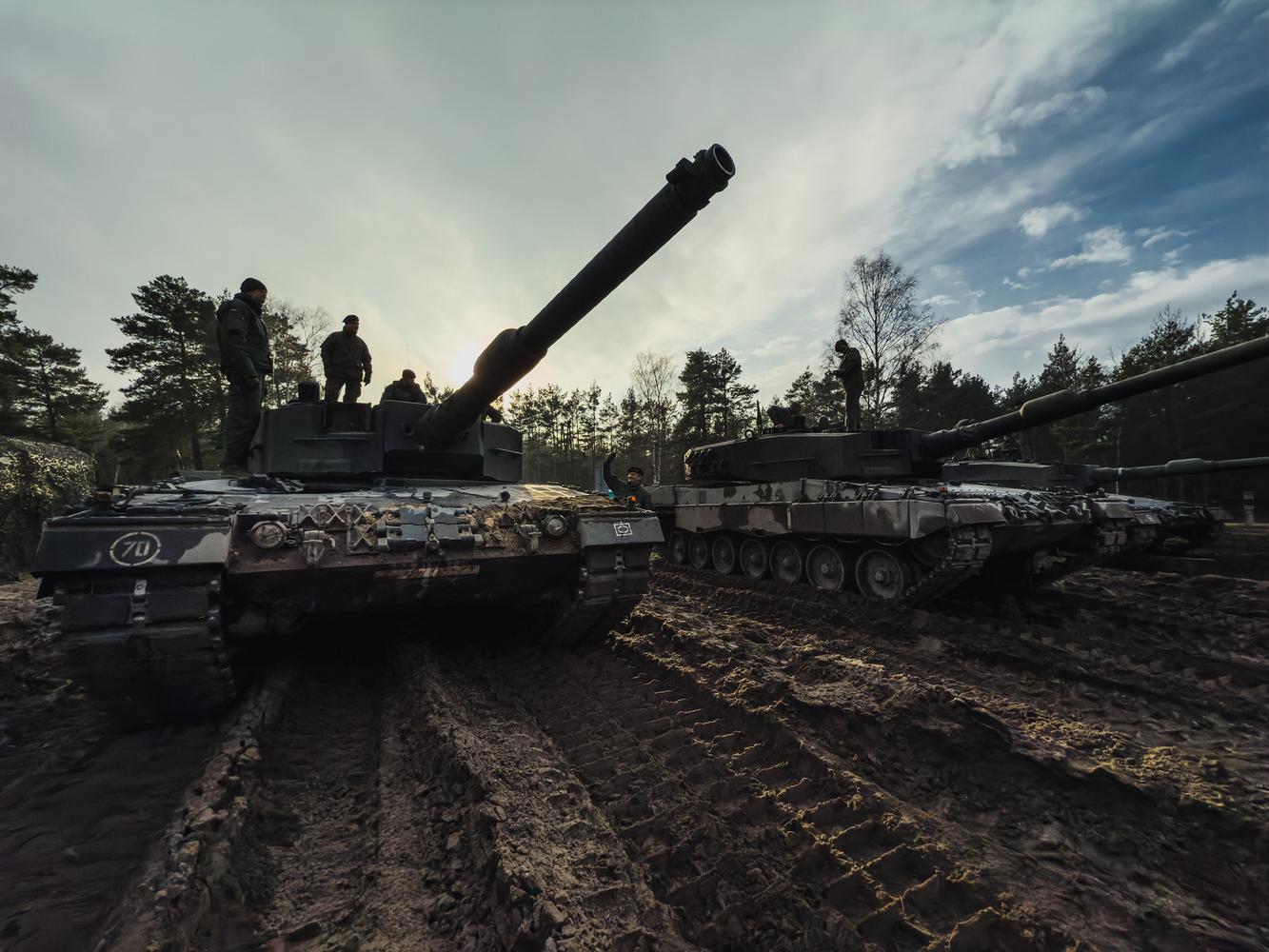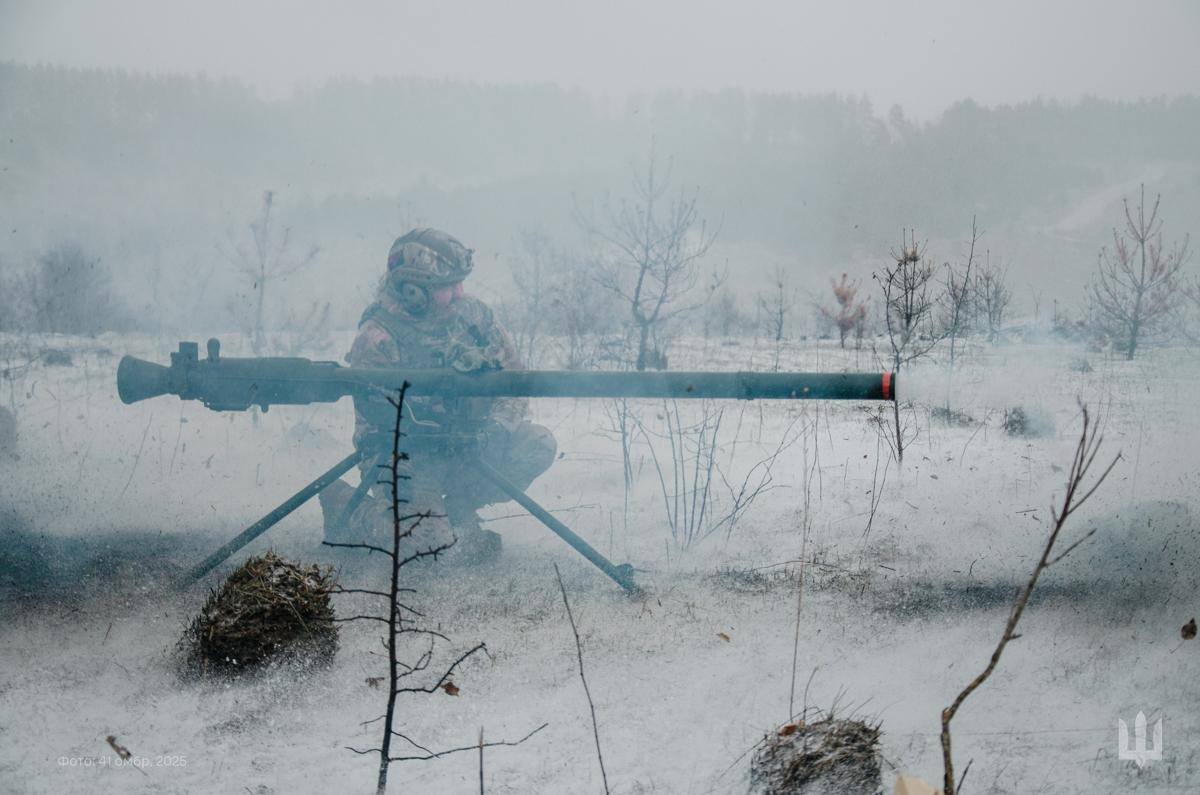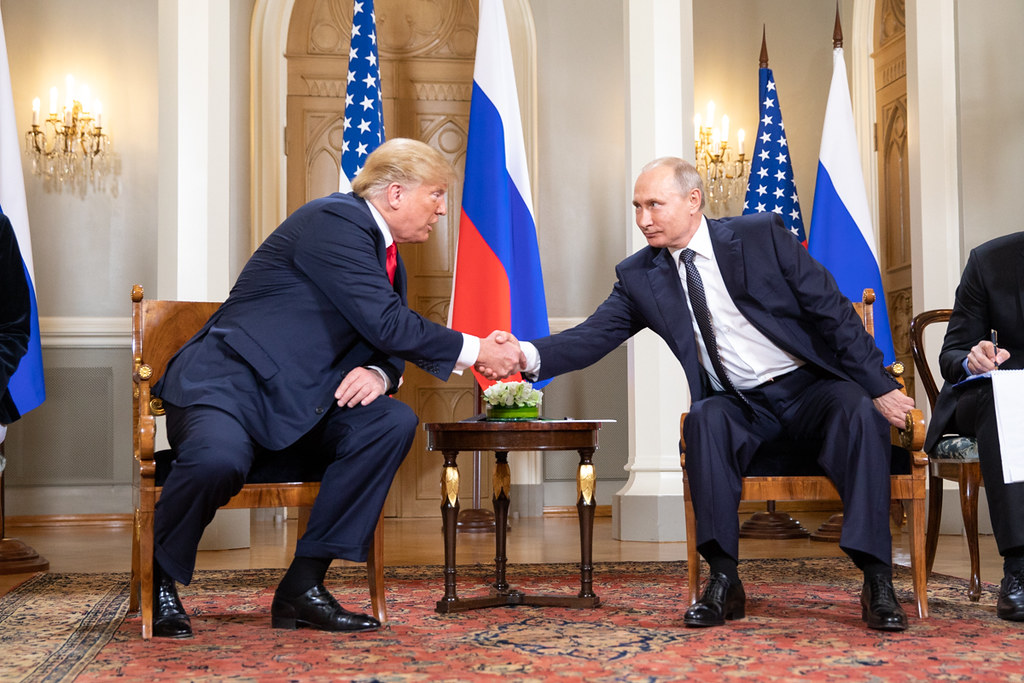In this exclusive interview, Anders Puck Nielsen, a Danish naval officer, military analyst at the Royal Danish Defence College, and influential YouTube commentator with over half a million subscribers, shares insights on Ukraine’s Kursk operation, the shifting Western support landscape, and why Russia’s war aims extend far beyond territory.
Known for his fact-based, pragmatic analysis that neither sugarcoats Ukraine’s challenges nor bows to narratives of Russian invincibility, Nielsen has become one of the most respected international voices on the war in Ukraine.
Nielsen frames the conflict not merely as a territorial dispute but as a fundamental struggle that will determine Europe’s future security architecture. “We’re fighting about where the new Iron Curtain will be,” he explains, emphasizing that Europe’s long-term security requires Ukraine to remain independent and aligned with Western democracies. This perspective challenges simplistic views of the war as a border conflict and places it in the broader historical context of Europe’s evolving relationship with Russia. For Nielsen, Ukraine’s position—whether it falls under Russian influence or maintains its sovereignty—will define the continent’s security landscape for decades to come.
The strategic value of the Kursk operation
Euromaidan Press: Ukrainian troops are withdrawing from Kursk Oblast. Commentators are divided on whether this incursion was justified. Did Ukraine get what it wanted? Did it lose more than it got?
Anders Puck Nielsen: Russia throws everything at Ukraine that they have. It’s better for Ukraine when this happens on Russian territory than in Ukraine. Russia invested enormous resources trying to push Ukraine out of Kursk. They thought they wouldn’t need that many resources initially and could keep pushing on several fronts. They gradually increased over time until they realized they needed to invest heavily.
The Kursk incursion dramatically reduced pressure on other frontline sectors by forcing Russia to redirect munitions and personnel. There’s discussion about whether Ukraine is losing a bargaining chip, but I think this was more about making it difficult for Russians to propose freezing the front line when Trump took office – not something Ukraine would trade in negotiations.
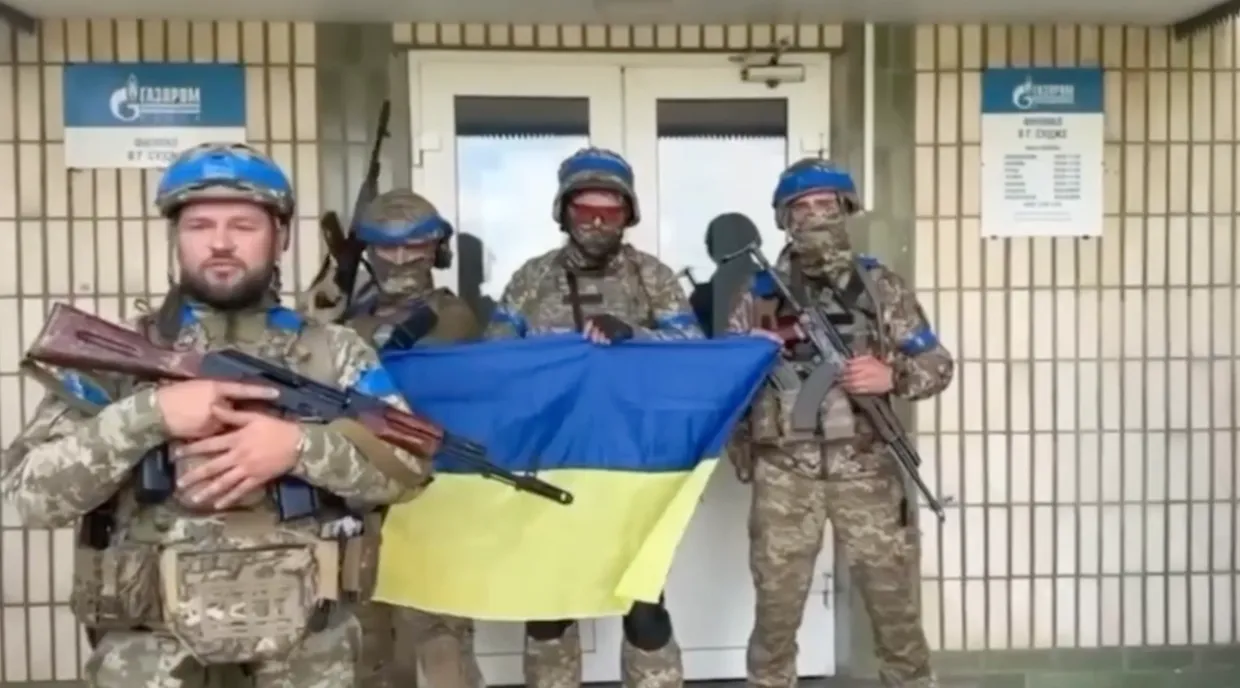
Kursk: Ukraine’s success or failure? Western defense experts and a soldier speak out
Having a presence in Kursk made it difficult for the Russians to suggest freezing the front line. This strategy worked, but it’s losing significance now that we’re a couple of months into Trump’s presidency.
Ukrainian troops will likely hold positions where possible. They’ve left Sudzha but haven’t withdrawn from the entirety of Kursk Oblast. The more Russian resources they can draw out, the better.
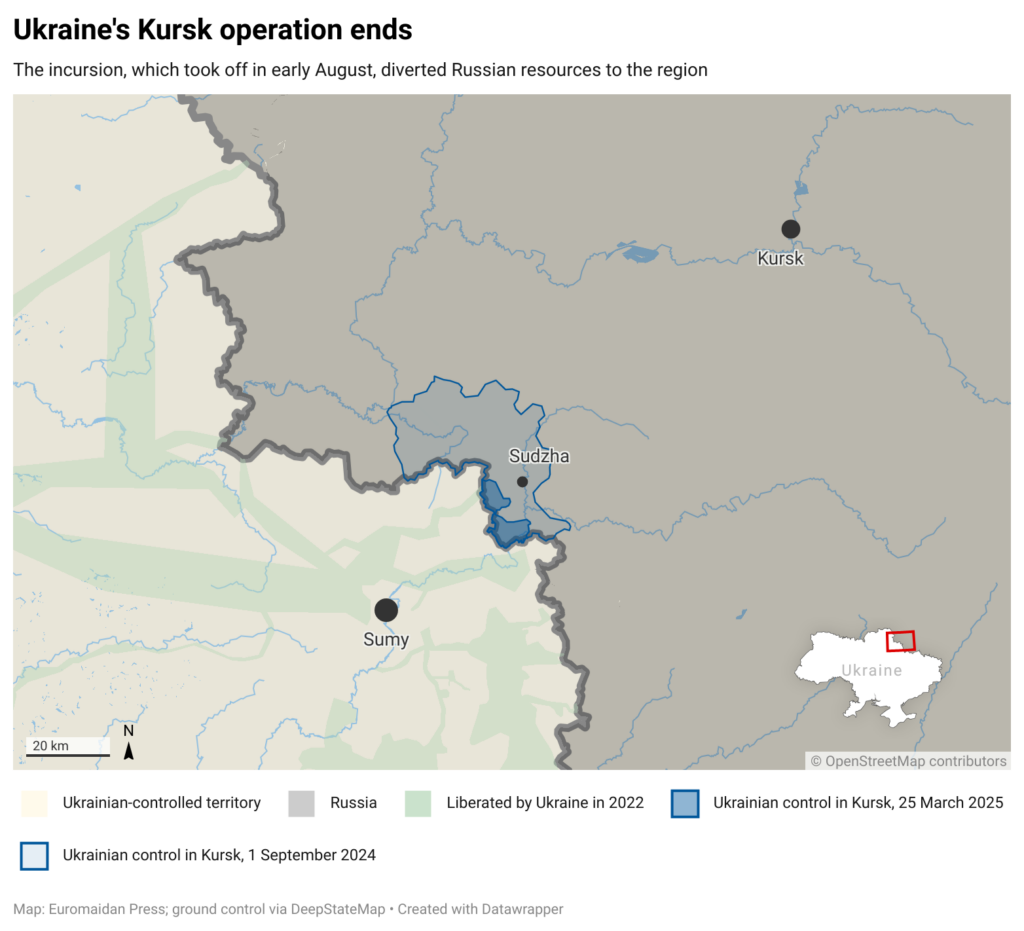
Trump’s presidency and Europe’s security awakening
Euromaidan Press: The months since Trump came into office have been turbulent – Zelensky’s difficult Oval Office meeting, European leaders expressing support, discussions about Europe supporting Ukraine without the US, and now Trump’s peace deal push. What’s your assessment?
Anders Puck Nielsen: Since Trump took office, it’s become clear the United States is not a trustworthy partner anymore – not just for Ukraine but for all European countries. However, the US still has resources that could help Ukraine, which is why Ukrainian diplomats are are doing their best to keep Americans happy and maintain the flow of American weapons.
But it’s become increasingly clear that this isn’t a good foundation for security guarantees in the future. The United States is simply not trustworthy as a partner in that sense.
For Ukraine, it’s good that this realization has dawned on other European countries too. Ukraine isn’t alone in feeling abandoned – all European countries are looking at what they thought was their security guarantee and seeing it’s not worth much. I’m from Denmark – we even have the American president saying he wants to annex part of our territory. There’s no way we can base our security on that.
The future European security order will require European countries, including Ukraine, to balance Russia on their own.
Euromaidan Press: Are European countries moving quickly enough with defense spending?
Anders Puck Nielsen: Different countries will move at different speeds. Poland is taking the lead. The new German government seems willing to make these steps. French President Macron says many of the right things and is also taking steps to increase French defense spending.
Mediterranean countries like Italy and Spain don’t view Russia as an immediate concern as countries sharing borders with Russia. They face different security challenges like migration, which are also valid concerns.
Europe will have some countries moving faster than others. But it’s encouraging that the big, resource-rich countries—not just the Baltics and Scandinavians but also major Central European countries — are now moving in this direction.
The fantasy of a quick peace deal
Euromaidan Press: What happens if a ceasefire materializes? We’ve seen with Minsk II how Russia used agreements as part of its larger strategy to dominate Ukraine.
Anders Puck Nielsen: Someone would probably break the ceasefire. The only player that really wants peace right now is the United States. The sides actually fighting the war – Russia and Ukraine – don’t seem to believe we’re close to an end to the fighting.
As a military analyst, I don’t see the conditions for war termination being met anytime soon. Ukraine and Russia’s objectives are not compatible in any way.
The biggest flaw in the American analysis is viewing this as a war about defining borders – that if they can just agree on a border, the war can end. That’s not what this war is about. Russia’s goal is political control over all of Ukraine. They want to push Ukraine in a direction where it becomes ungovernable until a puppet regime takes power in Kyiv.
Ukraine is fighting for sovereignty, independence, and freedom from Russian influence. These goals are incompatible. For one side to give up would require them to be about to lose the war, which isn’t the current military reality.
Both Russia and Ukraine are trying to influence American support. Russia wants Trump to blame Ukraine for the war continuing, so Trump will punish Ukraine by cutting aid and stopping intelligence sharing. Ukraine wants Trump to blame Russia. It’s a blame game, but I don’t see it as related to actually ending the fighting.
Euromaidan Press: What military conditions are needed for wars to end?
Anders Puck Nielsen: One side has to be really close to losing – facing collapse within months if they don’t make a deal.
It’s a war of attrition, but it’s a mistake to assume what’s happening at the frontline now represents a frozen conflict. That impression comes from only looking at map updates – you see very little movement, so people distant from the conflict might think it’s become pointless. But it’s really an intense war of attrition that’s still going on.
At some point, one side won’t be able to maintain this pace, and then we’ll see movement again. It’s about keeping intensity high, causing casualties, and sustaining production longer than your opponent.
I believe Russia’s economy will ultimately prove unable to sustain the war, but if they convince Trump that Ukraine is blocking peace, reduced American support could extend the timeline considerably.
Ukraine’s path forward and Europe’s security future
Euromaidan Press: How do you see things playing out in 2025?
Anders Puck Nielsen: Before Trump took office and showed his willingness to side with the Russian interpretation of events, I would have said 2025 could be when momentum shifts in Ukraine’s favor. I believe 2024 was peak Russian strength. Their economy is struggling, and they’re running out of resources.
If Ukraine receives fewer American supplies and is not equipped to really benefit from Russia’s declining strength, this momentum shift could be delayed into 2026 or beyond. But Russia will face increasing sustainability problems either way.
Euromaidan Press: Can we say that’s essentially the Ukrainian victory plan – to outlast Russia in a war of attrition?
Anders Puck Nielsen: Yes, I think that’s the basic plan. I’m kind of bullish on Ukraine’s chances because even though we are seeing indecisiveness from the United States, European countries now recognize that Ukraine’s victory is essential for their own security, especially as American guarantees have proven unreliable.
I don’t really see it as an option for the European countries to not continue providing Ukraine with the help necessary to continue this war, though there will be a transition period where replacing American equipment takes time. It’s about buying time to make that transition.
Euromaidan Press: We have this growing cynical attitude in Ukraine towards Europe’s position because we feel that while Ukraine is fighting Europe’s fight and the democratic world’s fight, we’re not being given the tools we need to win. Ukrainian soldiers are paying with their blood for Europe’s indecisiveness. Is there understanding in Europe that Ukraine’s resources aren’t infinite? What about Russia’s nuclear threats driving this hesitancy?
Anders Puck Nielsen: Most European countries have been comfortable letting America lead. The Biden administration established a strategy that kept Ukraine fighting but never equipped it to win, guided by fears of escalation -– what might Putin do if suddenly Ukraine is very strong and he is under pressure?
German Chancellor Scholz followed a similar approach. This tandem of Biden and Scholz really slowed things down, being careful and scared of escalation.
What’s happening now is it’s become clear that American leadership isn’t viable anymore. Trump doesn’t understand the conflict and doesn’t care about Ukraine or European security. He would be fine with a bad peace deal where Russia gets what it wants, as long as they stop shooting.
Europeans are now being forced to lead themselves. It’s still unfolding – we’re seeing efforts from Macron, the European Commission, and the British prime minister, with the new German chancellor being potentially crucial.
Is there an understanding that Ukraine’s resources are finite? I think so. We’ll see how far the European countries will go. The Skyshield initiative, for example – these ideas about a kind of no-fly zone that were floated at the very beginning of the war – now suddenly we are at the point where maybe we could do something like that.
Europe can’t allow Ukraine to lose this war. Ultimately, we’re fighting about where the new Iron Curtain will be. Europe needs Ukraine on its side of that line and has self-interest in Ukraine’s success. Depending on how things go, we might see a bigger commitment from European countries.

Hi! My name is Alya Shandra, I’m the author of this piece. I believe in the power of data and analysis, and that’s why we try to give you the best of it at Euromaidan Press.
Become our patron to help us bring you the best insights from Ukrainian and foreign analysts so we can cut through the noise together.
Why territorial concessions won’t bring peace
Euromaidan Press: Why does America get the war so wrong? Why is this worldview so pervasive – that Ukraine should just give up some land, and that’s it?
Anders Puck Nielsen: I get tired of all this talk about Ukraine giving up territory to end the war. It’s a simplistic view. What’s happening in eastern Ukraine is Russia putting pressure on the rest of Ukraine and on the Western alliance.
Russia wants to turn Ukraine into another Belarus. If the war ends with Russia getting only the territory they currently occupies, but the rest of Ukraine becomes a sovereign, Western-leaning, economically rich democracy, then from a Russian point of view, they lost the war.
Trump sees this only as a territorial dispute, which is why he gets it wrong. He thinks there’s a quick deal to be had, that sides can compromise. But the core views are incompatible – Ukraine can’t be both independent and under Russian control.
It can be really difficult to explain this dynamic, and clearly, the Americans don’t get it. If you don’t understand the dynamics, haven’t followed Russian history, don’t know what Putin wants to do with his great power ambitions to reestablish the empire, then you miss the big picture. There are people in the United States who understand this, but they don’t seem very influential in the current administration.
That’s why I’m pessimistic about the long-term relationship between Ukraine and the United States. American support is coming right now, and it’s about getting as much as possible while you can, as Trump might change his mind again tomorrow.
There was a period where American assistance stopped because the Americans thought they could pressure Ukraine to want peace. Now assistance is back, but I’m not sure that it’s sustainable because underneath this there is a political disagreement.
Donald Trump really does not share this vision of a Ukraine that is free and independent from Russian influence. I don’t even think he sees the problem. American support is coming right now, and it’s about getting as much as possible while you can, but he might change his mind again tomorrow.
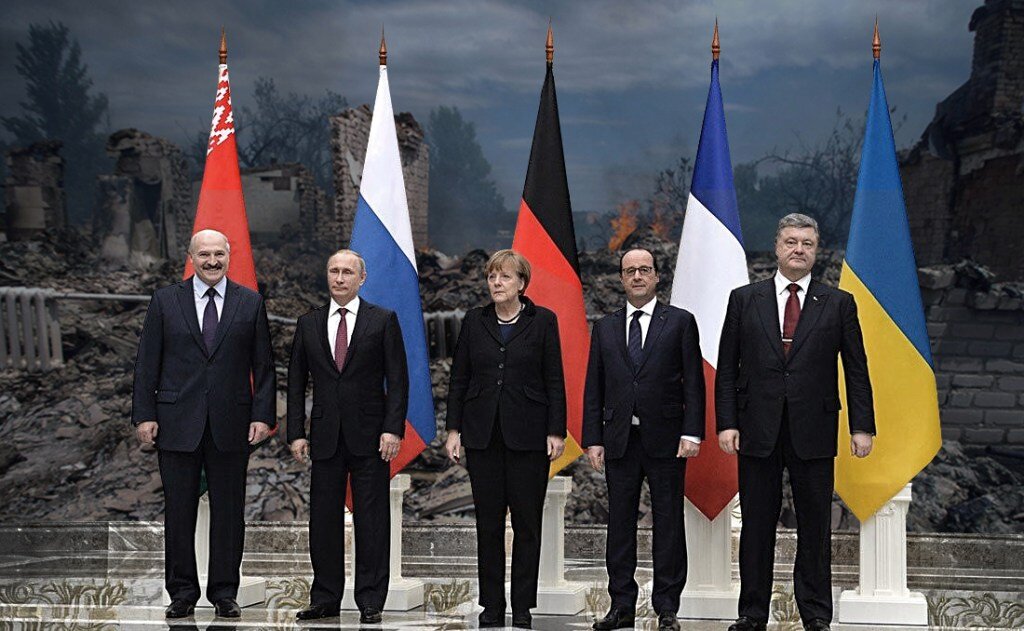
Russia’s last “Ukraine peace deal” led to Europe’s biggest war since WWII. Here’s why this one could be worse.
Euromaidan Press: I see the word “peace” brought up very often, and it’s going to be heard more and more. Many people perceive it as “they stopped shooting, finally the shooting is over, it’s peace.” But as a military analyst, what are your thoughts on that? What is peace? How is it achieved and how can peace be really achieved in this situation?
Anders Puck Nielsen: Its a bit depressing, because in military theory, we don’t actually talk about peace. We talk about different degrees of competition, and right now there’s intense armed competition. Even between Denmark and Norway, there’s some level of competition.
The ultimate dream would be Russia abandoning its imperialistic ambitions, which happens when you lose wars. Russia would need such a massive defeat that they never again consider invading Ukraine.
Without that, we need military deterrence. Ukraine tried this before the invasion with a strong military, assuming Russia wouldn’t invade because it would be disastrous. That deterrence failed.
We now need “deterrence by punishment” – essentially a nuclear shield. Ukraine needs a nuclear umbrella, but when Americans refuse to provide this, who will? The French arsenal isn’t nearly enough. Ukraine is in the same boat as the rest of Europe. We all look at this and say, where is actually our nuclear umbrella right now?
American withdrawal pulls the rug from under the entire non-proliferation regime. The principle was that democratic countries don’t need nuclear weapons because America has them. Now, democratic nations see this isn’t working anymore.
Euromaidan Press: Do you think it’s actually possible to have such a nuclear non-proliferation agreement when political regimes are so prone to change in democratic countries?
Anders Puck Nielsen: It’s unsustainable for authoritarian dictatorships to be the only nuclear powers. Democratic countries need deterrents if America isn’t providing an umbrella. But once you start this path, it’s hard to control proliferation – that’s why it’s such a difficult discussion.
What victory might look like
Euromaidan Press: Let’s return to Ukrainian victory. How would that look in 2025?
Anders Puck Nielsen: The Russian war economy isn’t sustainable long-term. For the war to end, the trend must reverse on the frontline. It doesn’t have to go fast, but at some point, when Putin looks at how much territory was gained in a month, he needs to see a number with a minus in front.
Their narrative is “it’s harder than expected but we’re still winning” – if they start feeling they’re losing, that changes the dynamic. It would likely be gradual, but military collapses can happen suddenly. Armies fight hard until one day they don’t.

Yes, Ukraine can win the war – ex-minister decodes victory plan
Euromaidan Press: So, Ukraine would gradually need to start winning on the battlefield, forcing Russia to acknowledge it can’t win and withdraw?
Anders Puck Nielsen: I don’t think they’re going to withdraw. But Russia might get to a point where they say, “Okay, we accept a period where we stop shooting but don’t yet have full control over all the occupied territories.” They might accept that kind of outcome because, otherwise, things are going to collapse for them.
Euromaidan Press: But wouldn’t that mean Ukraine will never regain these territories and they will remain Russian forever?
Anders Puck Nielsen: I don’t know. What do you think?
Euromaidan Press: I think it will be devastating. The amount of Russification and absorption into Russia that will happen, the brainwashing – it will just be irreparable. Not to mention the war crimes and human rights violations. And the eradication of all things Ukrainian and Ukrainian resistance and all the concentration camps going on right now. Russia has extensive experience with destroying national identity and integrating territories into its empire.
Anders Puck Nielsen: That process is already happening, right?
Euromaidan Press: It is. And the longer it goes on, the harder it will be for Ukraine to regain its territories.
Anders Puck Nielsen: But what about Zelensky sometimes saying about accepting not having control over these territories while we stop shooting and then getting them back by other methods?
Euromaidan Press: I think he’s being pressured into saying this. It’s a self-defeating plan for Ukraine. He just doesn’t want to look nonnegotiable. I believe Zelenskyy’s victory plan is actually the only way Ukraine can win this war. Anything else is just a recipe for the slow strangulation of Ukraine.
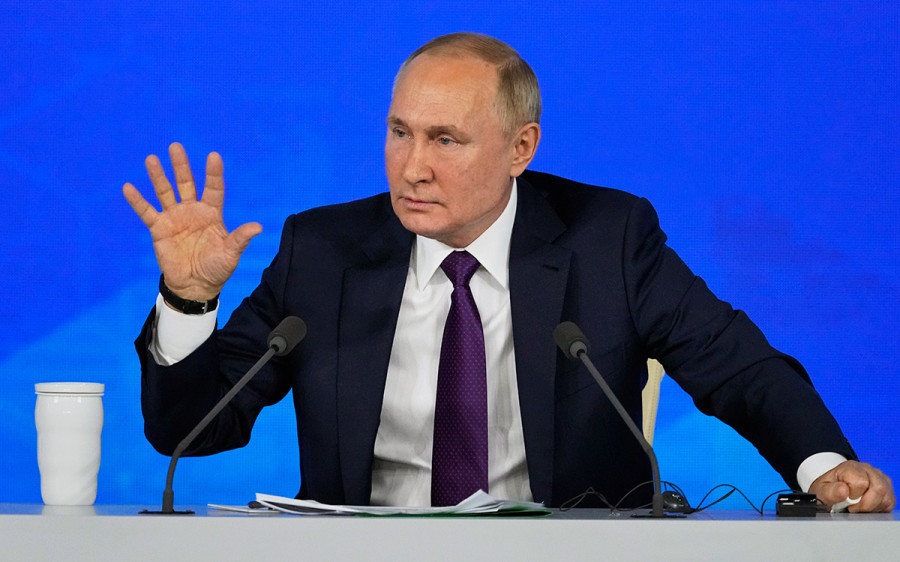
The peace trap: Five ways Putin wins if Ukraine freezes the war
The stakes for Europe and global security
Euromaidan Press: You said that Ukraine losing the war is not an option for Europe. What happens if Ukraine does lose?
Anders Puck Nielsen: Russia would establish a Belarus-type puppet government in Kyiv. They wouldn’t annex all of Ukraine, but it would become a pro-Russian puppet state.
This would enable further Russian aggression. Ukraine currently has Europe’s second-strongest army after Russia. These two combined against the rest of Europe would be catastrophic, with Ukraine’s defense industry falling into Russian hands.
Ukraine is the only country that could replace some of the military strength the United States is withdrawing. Western European countries shouldn’t delude themselves into thinking we have strong militaries because we spent more money or have more planes – German and French armies don’t match the Ukrainian one in combat effectiveness.
Russia’s approach is imperial expansion when opportunities arise, not according to a precise timetable. I expect Russia will test Western cohesion – will France actually defend Latvia when push comes to shove? I’m concerned about this scenario.
Euromaidan Press: Europe understands the gravity of the situation, but the United States doesn’t care. Trump wants to deal with China instead of Ukraine. Let’s imagine that Russia is emboldened after winning over Ukraine; how would that influence China? Would it help Trump achieve his goal?
Anders Puck Nielsen: America’s strategy is puzzling. They claim China is the future threat, yet alienating Europe doesn’t help. Will they face China alone? That makes no strategic sense.
Russia and China aren’t traditional allies. China doesn’t care about Russia’s imperial ambitions or who wins in Ukraine. But they do want to challenge the United States and create a multipolar world order. What’s strange is that Trump has accelerated this process. In that sense, China has won.
We’re seeing Europe and America emerging as separate poles, something nobody anticipated. This raises questions about China’s position. If America and Russia find common ground, would China benefit? Probably not. We might see China-Europe alignment on certain issues.
None of these developments benefit the United States, yet that’s the direction they’re taking.
Strategic recommendations
Euromaidan Press: What should the world be doing to help Ukraine?
Anders Puck Nielsen: I think there has to be a transition to primarily talking about Europe as the future framework. Ukraine should get whatever it can from the United States but not rely on Americans for future security guarantees. Move away from dependence on American technology where possible. Starlink is great as long as it works, but there has to be redundancy. Same for American weapons – Patriots are great, but get something else as well because they might change their mind tomorrow.
Europe must be the framework going forward. European countries need to invest quickly. The best way to boost defense production is in Ukrainian facilities – that’s where there’s the most potential for rapid output increases. We need more direct investment in Ukraine’s defense industry, following the Danish model.
Europe needs to increase its own production while sourcing from global markets, like the Czech initiative for artillery shells. The mindshift needed is that the United States is transitioning from being a reliable ally to just another potential market source that may or may not be willing to help or sell their stuff.


